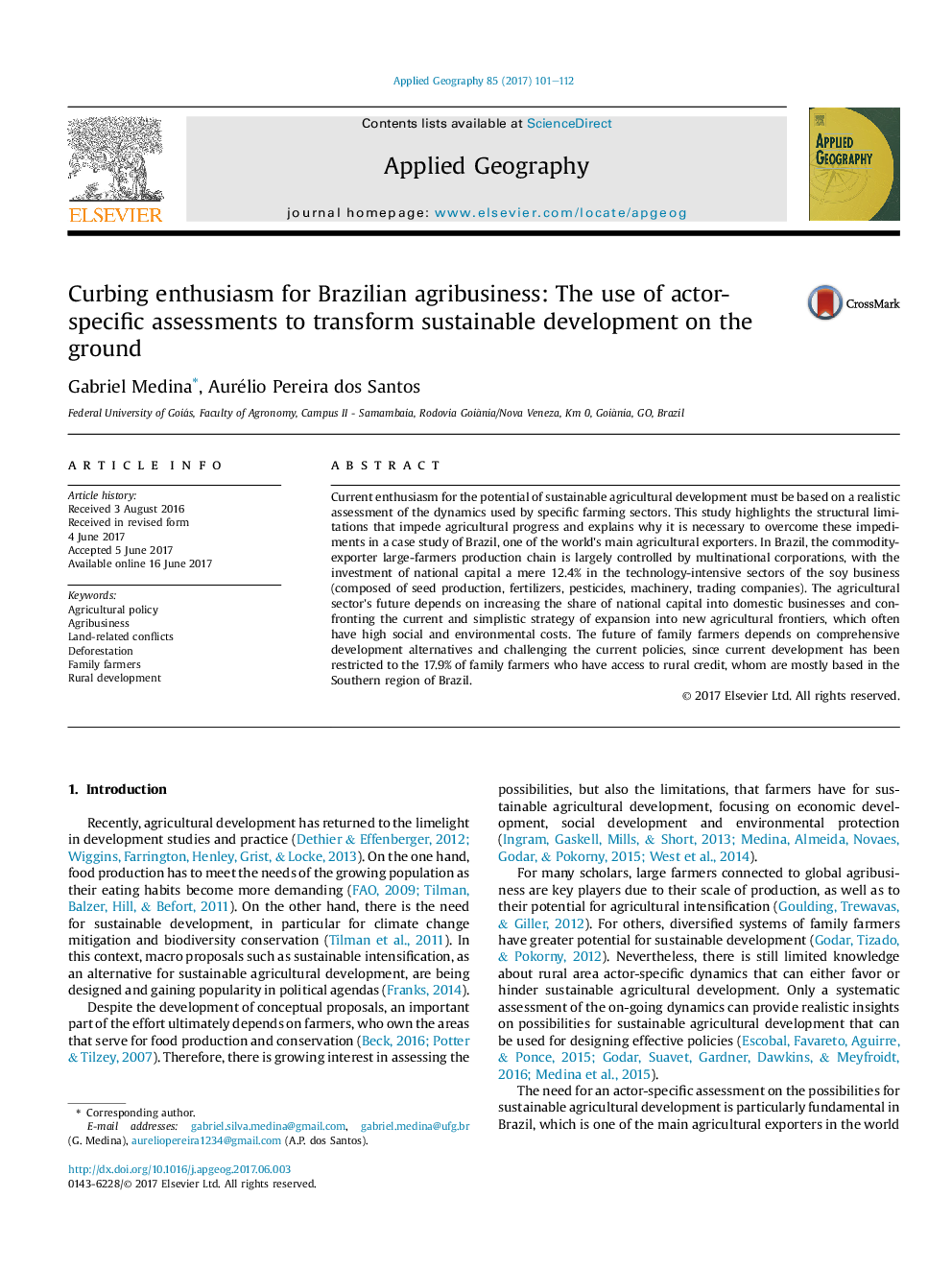| کد مقاله | کد نشریه | سال انتشار | مقاله انگلیسی | نسخه تمام متن |
|---|---|---|---|---|
| 6458263 | 1421032 | 2017 | 12 صفحه PDF | دانلود رایگان |
- Responsibility for sustainable agricultural development falls mainly on farmers.
- It is fundamental for Brazil, which is a main agricultural exporter in the world.
- Large farmers' future depends on increasing the share of national capital into the business.
- The future of family farmers depends on comprehensive development alternatives.
Current enthusiasm for the potential of sustainable agricultural development must be based on a realistic assessment of the dynamics used by specific farming sectors. This study highlights the structural limitations that impede agricultural progress and explains why it is necessary to overcome these impediments in a case study of Brazil, one of the world's main agricultural exporters. In Brazil, the commodity-exporter large-farmers production chain is largely controlled by multinational corporations, with the investment of national capital a mere 12.4% in the technology-intensive sectors of the soy business (composed of seed production, fertilizers, pesticides, machinery, trading companies). The agricultural sector's future depends on increasing the share of national capital into domestic businesses and confronting the current and simplistic strategy of expansion into new agricultural frontiers, which often have high social and environmental costs. The future of family farmers depends on comprehensive development alternatives and challenging the current policies, since current development has been restricted to the 17.9% of family farmers who have access to rural credit, whom are mostly based in the Southern region of Brazil.
Journal: Applied Geography - Volume 85, August 2017, Pages 101-112
